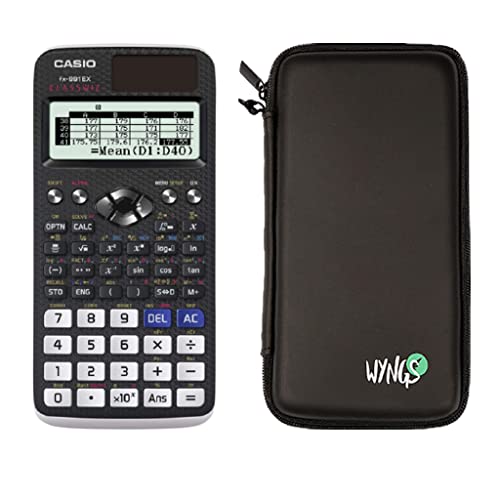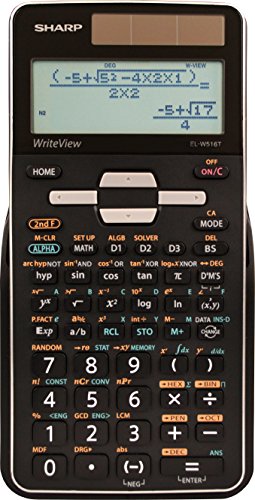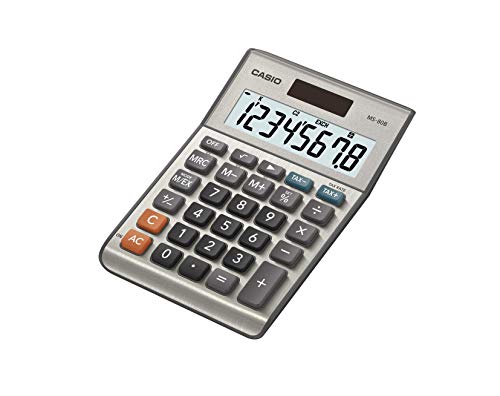Are you tired of constantly replacing the batteries in your calculator? Or perhaps you’re looking for a more eco-friendly alternative? Well, we understand your frustration, which is why we’re here to help! In this blog post, we’re going to delve into the world of solar-powered calculators and see how they compare to their battery-powered counterparts. Join us as we explore the benefits and drawbacks of each option, so you can make an informed decision about which calculator is right for you. So, let’s dive in and shed some light on the solar vs. battery-powered calculator debate!
Top-selling Solar-powered Calculators: Efficient and Environmentally Friendly Arithmetic Solutions
Overview of Solar-powered Calculators
Solar-powered calculators are efficient and sustainable devices that have gained popularity in recent years. As the name suggests, these calculators harness the power of the sun to generate the energy they need to function. In this blog post, we will delve into the benefits of using solar-powered calculators, highlighting their energy efficiency and environmental sustainability.
Energy Efficiency
Solar-powered calculators are remarkably energy-efficient. Unlike conventional calculators that rely on batteries, solar calculators harvest energy from the sun through their built-in solar panels. Here’s why this makes them a superior choice:
- Endless Power: Solar-powered calculators do not require a constant supply of batteries. As long as there is adequate sunlight, these calculators can operate for extended periods without interruption.
- No More Battery Hassle: With solar calculators, you never have to worry about running out of battery power or having to replace batteries. This not only saves you money but also eliminates the environmental impact associated with battery disposal.
- Sufficient Power Generation: Modern solar calculators are designed with high-efficiency solar panels that can generate sufficient power even under moderate light conditions. This means you can rely on your solar calculator even indoors or on cloudy days.
Environmental Sustainability
Using solar-powered calculators is not just energy-efficient; it is also a sustainable choice that contributes to a greener future. Let’s explore the environmental benefits of solar calculators:
- Reduced Waste: Since solar calculators do not require disposable batteries, they significantly reduce the amount of electronic waste generated. This helps to alleviate the environmental impact of battery production and disposal.
- Renewable Energy Source: Solar energy is a renewable and clean resource. By opting for solar-powered calculators, you are using a device that relies on an infinitely available energy source. Solar power helps combat climate change and reduces our dependence on fossil fuels.
- Lower Carbon Footprint: Generating power from solar energy produces zero greenhouse gas emissions. By using solar calculators, you are actively reducing your carbon footprint and contributing to a healthier environment for future generations.
Advantages of Battery-Powered Calculators
Calculators are an essential tool for countless individuals, from students solving complex math problems to professionals performing intricate calculations. When it comes to choosing the right calculator, there are various options available, including battery-powered calculators. In this blog section, we will delve into the advantages of using battery-powered calculators, highlighting their consistent performance and portability.
Consistent Performance
One of the key advantages of battery-powered calculators is their consistent performance. Here’s why they excel in this aspect:
- Steady Power Supply: Battery-powered calculators are not dependent on electrical outlets or external power sources. Instead, they rely on self-contained batteries, providing a steady power supply. This ensures that the calculator functions optimally, without any fluctuations or interruptions.
- Long Battery Life: Battery-powered calculators often come equipped with long-lasting batteries, allowing for extended periods of use before needing replacement. These calculators are designed to conserve battery life by adopting power-saving features, resulting in efficient energy consumption.
- Reliable Performance: With their consistent power source, battery-powered calculators offer reliable performance, ensuring accurate calculations every time. This is particularly crucial for professionals working in fields where precision and accuracy are of utmost importance, such as engineering, finance, and science.
Portability
Another significant advantage of battery-powered calculators is their portability, making them convenient for use in various settings. Here’s how battery-powered calculators excel in terms of portability:
- No Need for Electrical Outlets: Battery-powered calculators eliminate the need for electrical outlets, meaning you can use them anywhere, regardless of the availability of power sources. This makes them ideal for environments like classrooms, libraries, coffee shops, and even outdoor settings like study groups or fieldwork.
- Compact and Lightweight: Battery-powered calculators are designed to be compact and lightweight, making them easy to carry around. Their slim profile allows them to fit into backpacks, purses, or pockets, ensuring convenient access whenever needed. This feature is particularly beneficial for students and professionals who are constantly on the move.
- Suitable for Travel: Battery-powered calculators are the perfect travel companion for those who need to perform calculations on the go. Whether you’re a business traveler, a student studying abroad, or even a traveler exploring new destinations, having a portable calculator powered by batteries ensures you can always tackle mathematical challenges effortlessly.
In summary, battery-powered calculators offer consistent performance and portability. With their reliable power supply and efficient energy consumption, they ensure accurate calculations without interruptions. Additionally, the convenience of portability allows users to utilize these calculators in various settings and makes them an ideal choice for anyone who needs on-the-go number crunching capabilities.
Factors to Consider
Are you in the market for a calculator but unsure whether to go for a solar-powered or a battery-powered one? This decision can be overwhelming, but fear not – we’re here to help! In this blog post, we will discuss the key factors you should consider before making your choice. By evaluating your usage requirements, cost considerations, and accessibility to sunlight or replacement batteries, you’ll be able to determine which type of calculator suits your needs best.
1. Usage Requirements
Consider how and where you plan to use your calculator. Different usage scenarios may influence your decision between solar-powered and battery-powered options. Here are some things to think about:
- Indoor or Outdoor Use: If you primarily use your calculator indoors or in low-light environments, a battery-powered option may be more suitable. On the other hand, if you frequently work outside or in well-lit areas, a solar-powered calculator could be a great choice.
- Longevity: Are you looking for a calculator that will last for a long time without needing frequent battery replacements? Solar-powered calculators can be a better option as they rely on renewable energy sources and have long-lasting internal rechargeable batteries.
- Functionality: Consider the functions and features you need. Some advanced calculators require more power, which may not be suitable for solar-powered options. Evaluate your specific requirements to ensure the chosen calculator meets your needs.
2. Cost
Understanding the cost implications is important when making any purchasing decision. While solar-powered and battery-powered calculators may have different initial costs, thinking about long-term costs can be valuable. Here’s a breakdown:
- Initial Cost: Solar-powered calculators typically have a higher upfront cost due to the advanced technology they incorporate. On the other hand, battery-powered calculators tend to be more affordable initially.
- Battery Replacement Cost: If you opt for a battery-powered calculator, it’s important to consider the cost of purchasing and replacing batteries over time. Take into account the frequency of battery replacements and their associated costs.
- Savings on Energy: With a solar-powered calculator, you can save on energy costs as it harnesses energy from the sun. Over time, this can offset the higher initial cost and potentially save you money in the long run.
3. Accessibility to Sunlight or Replacement Batteries
An essential factor to consider is the availability and accessibility of sunlight or replacement batteries based on your location and preferences. Evaluating this aspect will help you make an informed choice:
- Sunlight Availability: Solar-powered calculators rely on sunlight to function optimally. If you live in a region with limited sunlight, consider whether your usage pattern aligns with the availability of sunlight for charging the calculator.
- Battery Replacement: For battery-powered calculators, it’s important to consider the ease of finding and replacing batteries. If you frequently use your calculator on the go and find it challenging to find replacement batteries, a solar-powered option might be more convenient.
- Environmentally Friendly: Solar-powered calculators are environmentally friendly since they reduce the reliance on single-use batteries, which can be harmful to the environment if not disposed of properly. By choosing solar-powered calculators, you contribute to reducing electronic waste.
Comparison and Conclusion
Calculators are essential tools that can assist in various mathematical tasks and make our lives easier. There are different types of calculators available in the market, each offering unique features and functionalities. In this blog section, we will compare two popular types of calculators: scientific calculators and graphing calculators, discussing their features, pros, and cons. Based on the factors discussed, we will then make a recommendation on which calculator type is suitable for different user needs.
Scientific Calculators
Scientific calculators are widely used by students, professionals, and scientists for their advanced mathematical functions and scientific computations. Here are some key features and benefits of scientific calculators:
- Functionality: Scientific calculators can perform a range of functions, including arithmetic calculations, trigonometry, logarithms, statistics, and more.
- Portability: Most scientific calculators are compact and lightweight, making them easy to carry around in pockets or backpacks.
- Affordability: Compared to graphing calculators, scientific calculators tend to be more affordable, making them a popular choice for students on a budget.
- Battery Life: Scientific calculators typically have longer battery life due to their simpler display and lower power requirements.
- Ease of Use: Scientific calculators generally have intuitive interfaces and straightforward buttons, making them easy for anyone to use.
However, there are a few drawbacks to consider when opting for a scientific calculator:
- Limited Graphing Capabilities: Scientific calculators lack the graphing capabilities found in graphing calculators, making it difficult to visualize mathematical functions.
- Restricted Programming Options: Scientific calculators have limited programming capabilities compared to graphing calculators, which limits the customization and flexibility of calculations.
Graphing Calculators
Graphing calculators, on the other hand, are designed with advanced features that allow users to plot graphs, analyze data, and solve complex equations. Some notable features and advantages of graphing calculators include:
- Graphing Functionality: This is the primary advantage of graphing calculators. They can plot graphs of equations, functions, and other data, allowing better visualization and analysis.
- Advanced Functionality: Graphing calculators offer more advanced mathematical functions, including matrices, calculus, and statistical analysis.
- Programmability: These calculators provide a programming language that allows users to create their own applications or customize existing ones.
- Storage Capacity: Graphing calculators generally have more memory and storage space, enabling users to save and retrieve larger datasets or applications.
However, there are a few drawbacks to consider before choosing a graphing calculator:
- Price: Graphing calculators are often more expensive than scientific calculators, which can make them less accessible for students on a tight budget.
- Size and Weight: Graphing calculators are typically larger and heavier compared to scientific calculators, which may impact portability.
- Battery Life: Due to their larger screens, advanced features, and high processing power, graphing calculators tend to have shorter battery life.
Recommendation
The choice between a scientific calculator and a graphing calculator ultimately depends on your specific needs and preferences. Here are some scenarios where each calculator type might be more suitable:
- Scientific Calculators:
- Ideal for basic mathematical calculations, trigonometry, logarithms, and statistics.
- Budget-friendly option for students and individuals who don’t require graphing or advanced programming capabilities.
- Recommended for individuals who prioritize portability and longer battery life.
- Graphing Calculators:
- Suitable for students, engineers, and professionals who require graphing capabilities, advanced mathematical functions, and programming options.
- Useful for subjects like calculus, physics, engineering, or any field that involves visualizing and analyzing complex mathematical relationships.
- An investment for individuals willing to spend more on advanced features and greater functionality.
We hope this comparison has provided valuable insights for selecting the calculator that best meets your needs. Consider the factors discussed above and choose wisely based on your requirements and budget.
Which Type of Calculator is the Better Option for You?
In conclusion, after examining the key factors between solar-powered and battery-powered calculators, we can confidently say that both options have their merits.
Solar-powered calculators are highly environmentally-friendly, as they rely on renewable energy from the sun. They are also cost-effective in the long run, as they do not require regular battery changes. However, they may not be ideal for areas with limited sun exposure or for individuals who frequently use their calculators indoors.
On the other hand, battery-powered calculators offer convenience and reliability, regardless of the lighting conditions. They are particularly suitable for indoor use or in areas with limited access to sunlight. Nevertheless, one must consider the environmental impact of regularly disposing of batteries.
It is crucial to evaluate your specific needs and circumstances before making a decision. If sustainability and long-term cost savings are of utmost importance, a solar-powered calculator is the way to go. However, if reliability and versatility are your priorities, a battery-powered calculator would be a more suitable choice.
In conclusion, the choice between solar and battery-powered calculators ultimately depends on your personal preferences and needs. We encourage you to weigh the pros and cons and make an informed decision based on the factors discussed in this blog post.













